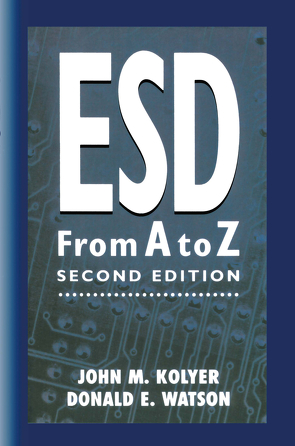
This work employs Husserl's concept of responsibility as a guiding clue for the clarification of the self-understanding of phenomenology as a `rigorous science'. Originally an appeal for radical accountability and ultimate foundation in the field of philosophical theory, Husserl's concept of responsibility culminated finally in a philosophy of human self-renewal. This philosophical telos of ultimate self-responsibility, which was also fuelled by a striving towards cultural reform, was realised for Husserl in a transcendental field of transparent self-evidence, linguistic univocity and transhistorical ideality. With reference to J. Derrida's reading of Husserl, the author shows, that the elements singled out as those for which phenomenology cannot assume responsibility - exteriority, passivity and contingency - are not only delivered over to the interminable process of being worked upon, but remain rather constitutive for the endeavour of phenomenologising itself. This becomes manifest in the inevitable linguisticality of phenomenology, its `secondary enworlding', as it is conceived in E. Fink's project of the VIth Cartesian Meditation. In the context of this linguisticality it is the explosive power of the metaphor, which vouches for the openness, that fulfils the mission of phenomenology to carry in its innermost nature responsibility for a space of transgression.
Aktualisiert: 2023-07-02
> findR *
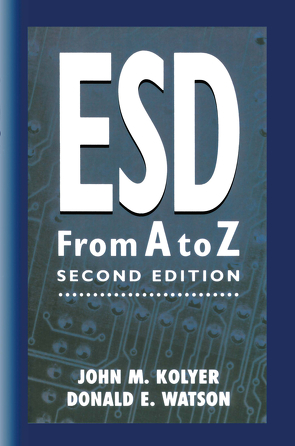
This work employs Husserl's concept of responsibility as a guiding clue for the clarification of the self-understanding of phenomenology as a `rigorous science'. Originally an appeal for radical accountability and ultimate foundation in the field of philosophical theory, Husserl's concept of responsibility culminated finally in a philosophy of human self-renewal. This philosophical telos of ultimate self-responsibility, which was also fuelled by a striving towards cultural reform, was realised for Husserl in a transcendental field of transparent self-evidence, linguistic univocity and transhistorical ideality. With reference to J. Derrida's reading of Husserl, the author shows, that the elements singled out as those for which phenomenology cannot assume responsibility - exteriority, passivity and contingency - are not only delivered over to the interminable process of being worked upon, but remain rather constitutive for the endeavour of phenomenologising itself. This becomes manifest in the inevitable linguisticality of phenomenology, its `secondary enworlding', as it is conceived in E. Fink's project of the VIth Cartesian Meditation. In the context of this linguisticality it is the explosive power of the metaphor, which vouches for the openness, that fulfils the mission of phenomenology to carry in its innermost nature responsibility for a space of transgression.
Aktualisiert: 2023-07-02
> findR *
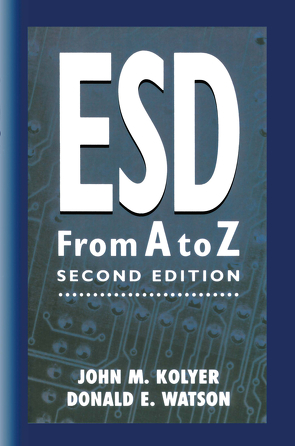
This work employs Husserl's concept of responsibility as a guiding clue for the clarification of the self-understanding of phenomenology as a `rigorous science'. Originally an appeal for radical accountability and ultimate foundation in the field of philosophical theory, Husserl's concept of responsibility culminated finally in a philosophy of human self-renewal. This philosophical telos of ultimate self-responsibility, which was also fuelled by a striving towards cultural reform, was realised for Husserl in a transcendental field of transparent self-evidence, linguistic univocity and transhistorical ideality. With reference to J. Derrida's reading of Husserl, the author shows, that the elements singled out as those for which phenomenology cannot assume responsibility - exteriority, passivity and contingency - are not only delivered over to the interminable process of being worked upon, but remain rather constitutive for the endeavour of phenomenologising itself. This becomes manifest in the inevitable linguisticality of phenomenology, its `secondary enworlding', as it is conceived in E. Fink's project of the VIth Cartesian Meditation. In the context of this linguisticality it is the explosive power of the metaphor, which vouches for the openness, that fulfils the mission of phenomenology to carry in its innermost nature responsibility for a space of transgression.
Aktualisiert: 2022-03-09
> findR *
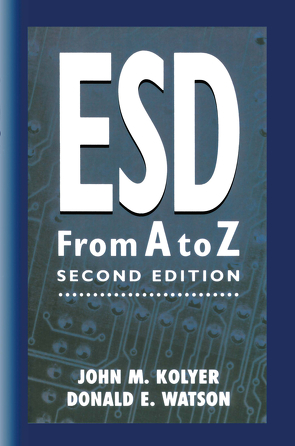
This work employs Husserl's concept of responsibility as a guiding clue for the clarification of the self-understanding of phenomenology as a `rigorous science'. Originally an appeal for radical accountability and ultimate foundation in the field of philosophical theory, Husserl's concept of responsibility culminated finally in a philosophy of human self-renewal. This philosophical telos of ultimate self-responsibility, which was also fuelled by a striving towards cultural reform, was realised for Husserl in a transcendental field of transparent self-evidence, linguistic univocity and transhistorical ideality. With reference to J. Derrida's reading of Husserl, the author shows, that the elements singled out as those for which phenomenology cannot assume responsibility - exteriority, passivity and contingency - are not only delivered over to the interminable process of being worked upon, but remain rather constitutive for the endeavour of phenomenologising itself. This becomes manifest in the inevitable linguisticality of phenomenology, its `secondary enworlding', as it is conceived in E. Fink's project of the VIth Cartesian Meditation. In the context of this linguisticality it is the explosive power of the metaphor, which vouches for the openness, that fulfils the mission of phenomenology to carry in its innermost nature responsibility for a space of transgression.
Aktualisiert: 2023-04-21
> findR *
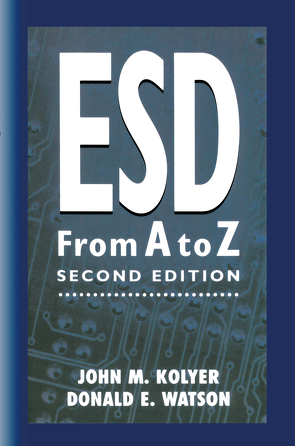
This work employs Husserl's concept of responsibility as a guiding clue for the clarification of the self-understanding of phenomenology as a `rigorous science'. Originally an appeal for radical accountability and ultimate foundation in the field of philosophical theory, Husserl's concept of responsibility culminated finally in a philosophy of human self-renewal. This philosophical telos of ultimate self-responsibility, which was also fuelled by a striving towards cultural reform, was realised for Husserl in a transcendental field of transparent self-evidence, linguistic univocity and transhistorical ideality. With reference to J. Derrida's reading of Husserl, the author shows, that the elements singled out as those for which phenomenology cannot assume responsibility - exteriority, passivity and contingency - are not only delivered over to the interminable process of being worked upon, but remain rather constitutive for the endeavour of phenomenologising itself. This becomes manifest in the inevitable linguisticality of phenomenology, its `secondary enworlding', as it is conceived in E. Fink's project of the VIth Cartesian Meditation. In the context of this linguisticality it is the explosive power of the metaphor, which vouches for the openness, that fulfils the mission of phenomenology to carry in its innermost nature responsibility for a space of transgression.
Aktualisiert: 2023-04-21
> findR *
MEHR ANZEIGEN
Bücher von Kuster, F.
Sie suchen ein Buch oder Publikation vonKuster, F. ? Bei Buch findr finden Sie alle Bücher Kuster, F..
Entdecken Sie neue Bücher oder Klassiker für Sie selbst oder zum Verschenken. Buch findr hat zahlreiche Bücher
von Kuster, F. im Sortiment. Nehmen Sie sich Zeit zum Stöbern und finden Sie das passende Buch oder die
Publiketion für Ihr Lesevergnügen oder Ihr Interessensgebiet. Stöbern Sie durch unser Angebot und finden Sie aus
unserer großen Auswahl das Buch, das Ihnen zusagt. Bei Buch findr finden Sie Romane, Ratgeber, wissenschaftliche und
populärwissenschaftliche Bücher uvm. Bestellen Sie Ihr Buch zu Ihrem Thema einfach online und lassen Sie es sich
bequem nach Hause schicken. Wir wünschen Ihnen schöne und entspannte Lesemomente mit Ihrem Buch
von Kuster, F. .
Kuster, F. - Große Auswahl an Publikationen bei Buch findr
Bei uns finden Sie Bücher aller beliebter Autoren, Neuerscheinungen, Bestseller genauso wie alte Schätze. Bücher
von Kuster, F. die Ihre Fantasie anregen und Bücher, die Sie weiterbilden und Ihnen wissenschaftliche Fakten
vermitteln. Ganz nach Ihrem Geschmack ist das passende Buch für Sie dabei. Finden Sie eine große Auswahl Bücher
verschiedenster Genres, Verlage, Schlagworte Genre bei Buchfindr:
Unser Repertoire umfasst Bücher von
- Kusterer, Anne
- Kusterer, Anny
- Kusterer, Günther
- Kusterer, Günther
- Kusterer, Harald
- Kusterer, Hermann
- Kusterer, Hermann Aus d. Engl.
- Kusterer, Karin
- Kusterer, Manuela
- Kusterer, Peter
Sie haben viele Möglichkeiten bei Buch findr die passenden Bücher für Ihr Lesevergnügen zu entdecken. Nutzen Sie
unsere Suchfunktionen, um zu stöbern und für Sie interessante Bücher in den unterschiedlichen Genres und Kategorien
zu finden. Neben Büchern von Kuster, F. und Büchern aus verschiedenen Kategorien finden Sie schnell und
einfach auch eine Auflistung thematisch passender Publikationen. Probieren Sie es aus, legen Sie jetzt los! Ihrem
Lesevergnügen steht nichts im Wege. Nutzen Sie die Vorteile Ihre Bücher online zu kaufen und bekommen Sie die
bestellten Bücher schnell und bequem zugestellt. Nehmen Sie sich die Zeit, online die Bücher Ihrer Wahl anzulesen,
Buchempfehlungen und Rezensionen zu studieren, Informationen zu Autoren zu lesen. Viel Spaß beim Lesen wünscht Ihnen
das Team von Buchfindr.




